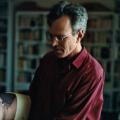A little while ago I posted on The Shallows, Nicholas Carr’s thoughtful and thought-provoking book on ‘what the internet is doing to our brains’. At the time there had been a few reviews, but since then another one has appeared that fired me up again: ‘Smarter, Happier, More Productive‘, by Jim Holt in the London Review of Books.
Holt’s review, like most good reviews, is more than a review – it’s an essay: he analyzes, he critiques, he adds alternative perspectives, he draws on the thoughts of ‘big thinkers’ (e.g. Stephen Pinker), he challenges and he engages the reader on an alternative pathway. To where? Well, it largely leads to the conclusion that what may suffer is our creativity:
 What do we really know about creativity? Very little. We know that creative genius is not the same thing as intelligence. In fact, beyond a certain minimum IQ threshold – about one standard deviation above average, or an IQ of 115 – there is no correlation at all between intelligence and creativity. … It is the connection between memory and creativity, perhaps, which should make us most wary of the web. ‘As our use of the web makes it harder for us to lock information into our biological memory, we’re forced to rely more and more on the net’s capacious and easily searchable artificial memory,’ Carr observes. But conscious manipulation of externally stored information is not enough to yield the deepest of creative breakthroughs … Human memory, unlike machine memory, is dynamic. Through some process we only crudely understand … novel patterns are unconsciously detected, novel analogies discovered. And this is the process that Google, by seducing us into using it as a memory prosthesis, threatens to subvert. … It’s not that the web is making us less intelligent; if anything, the evidence suggests it sharpens more cognitive skills than it dulls. It’s not that the web is making us less happy, although there are certainly those who, like Carr, feel enslaved by its rhythms and cheated by the quality of its pleasures. It’s that the web may be an enemy of creativity.
What do we really know about creativity? Very little. We know that creative genius is not the same thing as intelligence. In fact, beyond a certain minimum IQ threshold – about one standard deviation above average, or an IQ of 115 – there is no correlation at all between intelligence and creativity. … It is the connection between memory and creativity, perhaps, which should make us most wary of the web. ‘As our use of the web makes it harder for us to lock information into our biological memory, we’re forced to rely more and more on the net’s capacious and easily searchable artificial memory,’ Carr observes. But conscious manipulation of externally stored information is not enough to yield the deepest of creative breakthroughs … Human memory, unlike machine memory, is dynamic. Through some process we only crudely understand … novel patterns are unconsciously detected, novel analogies discovered. And this is the process that Google, by seducing us into using it as a memory prosthesis, threatens to subvert. … It’s not that the web is making us less intelligent; if anything, the evidence suggests it sharpens more cognitive skills than it dulls. It’s not that the web is making us less happy, although there are certainly those who, like Carr, feel enslaved by its rhythms and cheated by the quality of its pleasures. It’s that the web may be an enemy of creativity.
All good stuff! But you’ll have to read Holt’s review to fill in the details and appreciate the argument. And if you like it, stand by for his next essay, ‘Why does the world exist?’, which will be published later this year. You’ll hear a taster of it if you listen to his audio interview, ‘The puzzle of existence‘.
Sticking with creativity, it’s not only the internet that stands accused. The system of education, especially schools, have been vehemently attacked (and rightly so?) for actively stultifying the creativity of students. To appreciate the argument, listen to Sir Ken Robinson:
Finally, on a somewhat more positive note, read what David Peat has to say about ‘Creativity and Education‘. As a taster,
We ask how can our children be more creative? I would suggest that the first step is to allow ourselves to be creative. To allow that energy to bubble up from below. To play. To act in a way that is free and unconditioned and not directed by anything outside itself.
The hardest thing is to allow this creativity in ourselves and in others. Can we really stand back and let it happen? Not encourage it, reward it, direct it, structure it, give it goals. Can we simply leave the child alone to play, to take things in its own way?
Read it. Try it. Be creative.
Pingback: » 12 … no, make that 5 … videos you should view David Murphy's Occasional Blog